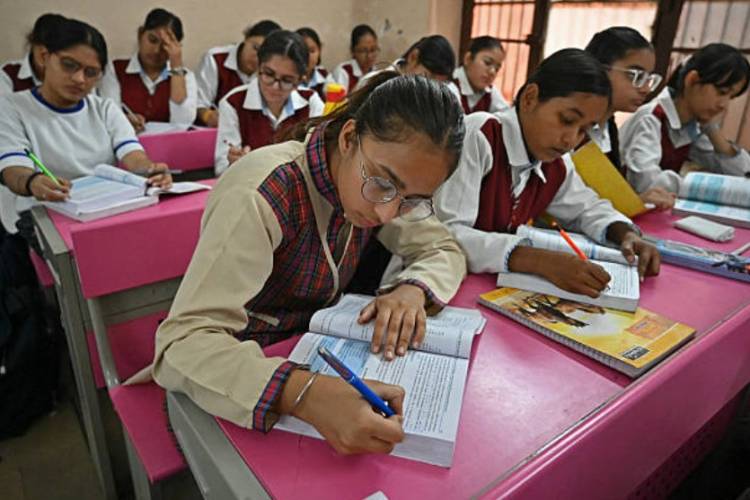
A fresh flashpoint has emerged between the Kerala government and the Centre — this time over the implementation of centrally sponsored schemes. Kerala has decided to move the Supreme Court against the Union government, alleging a deliberate withholding of Rs 1,500 crore in education sector funds. Kerala’s education minister V Sivankutty said the Centre’s decision followed the state’s refusal to sign on to the Centre’s flagship PM Schools for Rising India (PM SHRI) programme.
This confrontation is emblematic of a deeper problem: central schemes often fail to accommodate regional priorities, progress, and diversity. The fallout threatens to strain the already fragile framework of cooperative federalism.
READ | US-China tariff deal shatters India’s manufacturing hopes
What is PM SHRI
Launched by the ministry of education in 2022, the PM SHRI scheme aims to upgrade over 14,500 schools across India into model schools reflecting the principles of the National Education Policy (NEP) 2020. With a five-year outlay of Rs 27,360 crore — including a central share of Rs 18,128 crore — the scheme requires participating states to contribute 40% of the project cost, a structure similar to other CSS programmes.
As of now, 12,400 schools across 670 districts have been brought under PM SHRI. Yet, several states — including Kerala, Tamil Nadu, and West Bengal — have opted out, citing ideological opposition and concerns over excessive central control.
Kerala’s stand: Redundancy and resistance
Kerala, ruled by the Left Democratic Front, led by CPI(M), has resisted the PM SHRI scheme because it is closely aligned with the NEP 2020 — a policy the state opposes, viewing it as an attempt at saffronising education. The state also contends that the scheme offers little value, given the strides Kerala has already made. With near-universal literacy, over 40,000 smart classrooms, and widespread broadband access in schools, the state claims it has already achieved many of the goals outlined under PM SHRI.
State officials argue that what Kerala now needs is not basic infrastructure, but targeted support for innovation, research, and equity in education. In this context, the Centre’s decision to withhold Rs 1,500 crore under the Samagra Shiksha Abhiyan (SSA) — an unrelated scheme focused on universalising education — is seen as punitive and politically motivated.
Central schemes in progressive states
At the heart of the debate lies a structural issue. Centrally sponsored schemes are designed to fulfil national priorities, but their one-size-fits-all approach often disregards India’s immense diversity. Education, being a concurrent subject, gives states autonomy — yet central schemes’ frameworks offer little room for tailoring to local needs.
Kerala and other well-performing states argue that central schemes assume all states start from the same baseline. In reality, while Kerala is focused on improving quality and equity, states like Bihar and Uttar Pradesh are still grappling with foundational issues such as access and basic infrastructure. The uniform funding model also becomes a barrier — poorer states may lack the fiscal capacity to contribute their share, while richer ones see limited benefit in participating.
The political friction is further compounded by the perception that the Centre uses schemes like PM SHRI as tools of control. Southern states, for instance, have long expressed concern over the imposition of Hindi through centrally designed curricula. Such cultural and linguistic anxieties heighten resistance to policies perceived as top-down impositions.
Undermining cooperative federalism
The Centre’s decision to link unrelated education funds to a state’s willingness to join PM SHRI undermines the very essence of cooperative federalism. Programmes like the SSA are foundational to achieving universal education. Withholding such funds jeopardises the learning outcomes of millions of students and risks derailing progress made by high-performing states.
What is needed is a shift towards flexibility, equity, and genuine collaboration. States like Kerala should be allowed to use central funds to build on existing strengths — for example, investing in AI-based learning, teacher training, or inclusive education — rather than duplicating infrastructure already in place.
Moreover, the Centre must re-examine the rigid 60:40 funding model. A differentiated approach that factors in fiscal capacity and developmental needs would ensure that no state is left behind, and that progressive ones are incentivised to continue innovating.
India’s diversity demands decentralisation, not uniformity. If education reform is truly a national priority, the Centre must engage states as partners, not subordinates. That means allowing customisation of schemes, being sensitive to local contexts, and — above all — avoiding the politicisation of development funds.
One path forward could be to allow direct district-level access to funds, bypassing state-level bottlenecks and political frictions. This could ensure that students and schools — not political actors — are at the centre of education reform.
The Kerala-Centre standoff is more than a regional dispute; it is a litmus test for India’s federal framework. Without trust, dialogue, and mutual respect between the Centre and states, flagship reforms like PM SHRI risk becoming just another battleground in an increasingly centralised polity.
